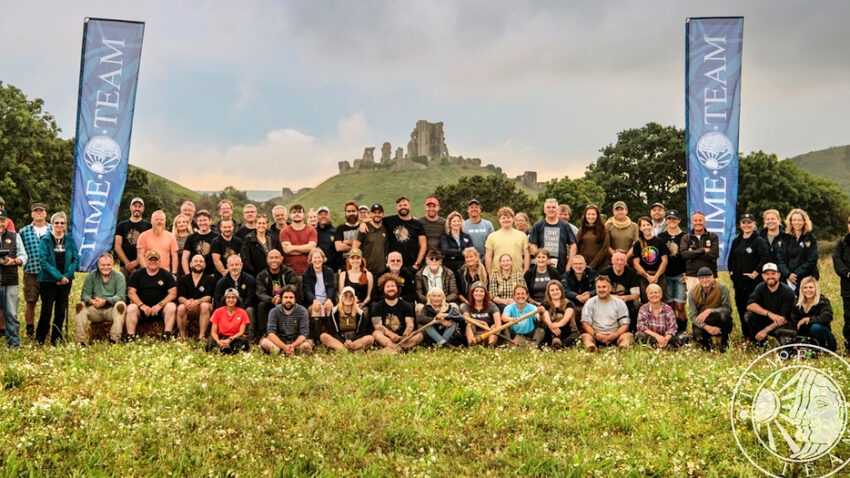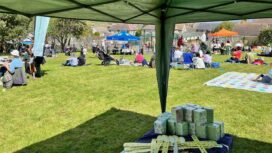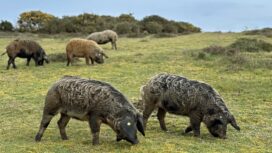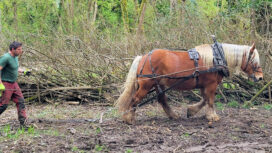One of Britain’s best loved TV series has taken up a three day challenge near Corfe Castle in Dorset – to discover whether the Iron Age Purbeck population welcomed Roman invaders with open arms.
Time Team, the programme which is credited with popularising archaeology for a mass audience, celebrated its 30th anniversary in Purbeck on Friday 15th September 2023 with a birthday cake and a hog roast provided by The Salt Pig.
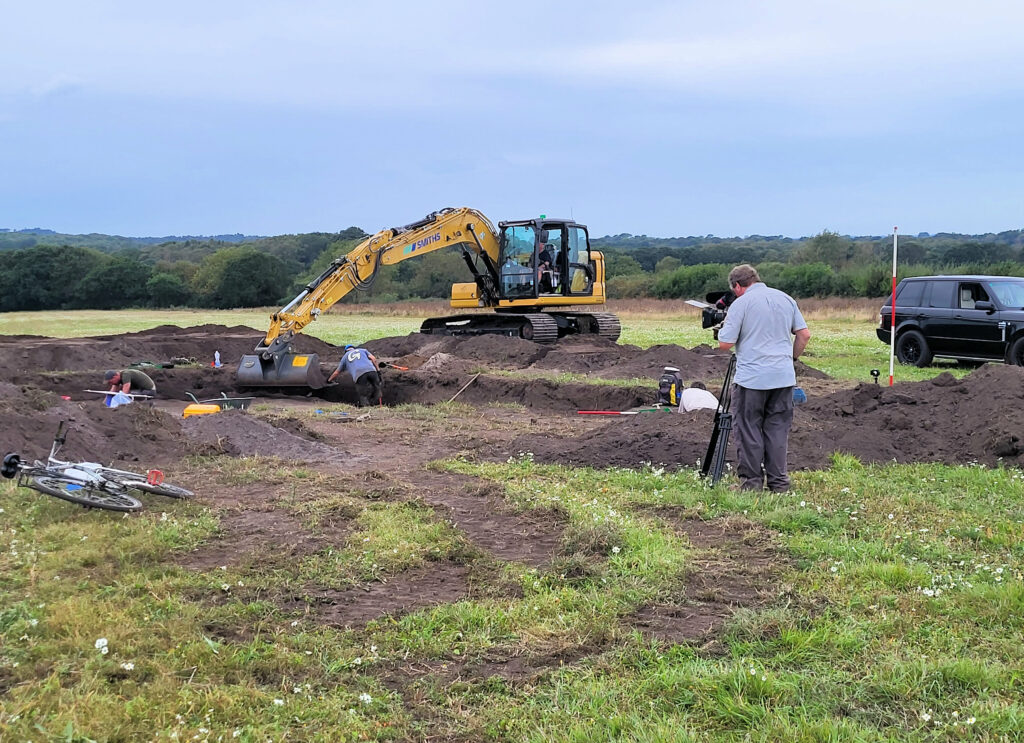
Diggers open up a trench in the field expecting to find Iron Age and Roman artefacts
“Were local folk a bit more welcoming?”
But there was limited time for fun as the team had set themselves the familiar three day challenge to solve an ancient mystery – in this case, how did the Iron Age population of Purbeck react to the Roman conquest of Britain in 43AD?
Archaeologist Dr Derek Pitman, of Bournemouth University, brought the Time Team to fields near Corfe Castle where both Roman and Iron Age remains have been found in the past, and said:
“As a Dorset boy, I’m thrilled to welcome the Time Team to my turf for an incredible weekend.
“We have a thousand years of history in one trench alone which could just be the tip of something much bigger, and what I am especially interested in is the transition from an Iron Age settlement to Roman Britain.
“At the end of the Iron Age, life had started to become complex here and they were trading with the continent and with Romans themselves – so what happened when the Romans arrived here in Purbeck in 44AD?
“We know the local Durotriges tribe were a bit hostile in places, but they were also very inconsistent.
“So it is possible that the local folk could have been a bit more welcoming, saw them as friends and trade partners from across the Channel and maybe were happier to have new Roman overlords?”
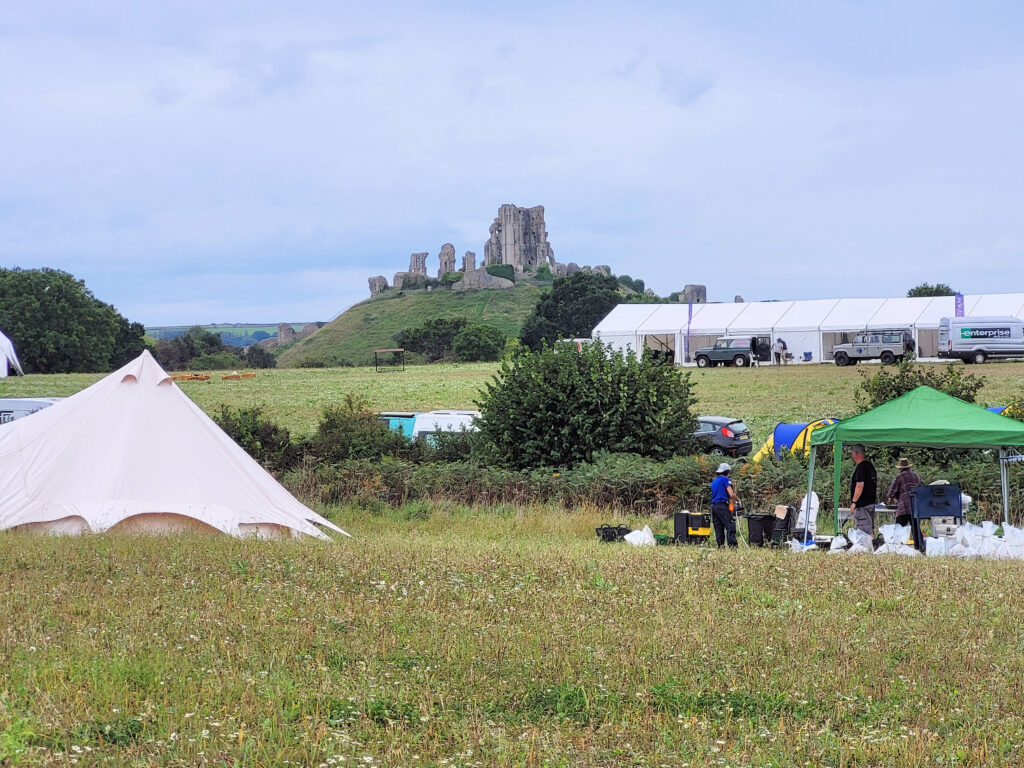
The Time Team production village set up in fields on the edge of Corfe Castle
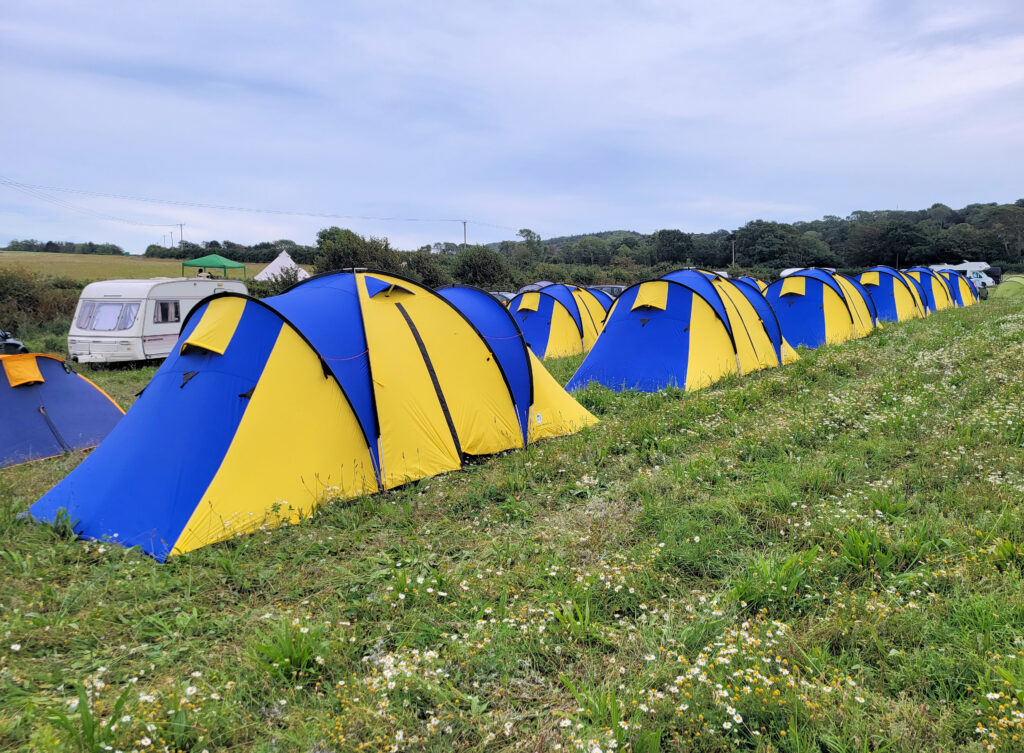
Weekend accommodation was in a tent village, as work began at first light
Diggers took off layers of history
There is history stretching over 2,500 years in the fields chosen, but the Time Team was most interested in the much shorter period where Iron Age and Roman cultures merged, and had carried out geophysical surveys of the site to locate the best places to dig.
Mechanical diggers then opened up trenches, taking off layers of history until the archaeologists were able to stand at a level where 1st Century life played out before painstakingly uncovering evidence of the community there.
Using the latest generation of technology, the team set out to discover whether the plentiful evidence of Iron Age activity was a camp, a settlement, an industrial site or all of those things.
It is now possible to tell from tiny amounts of fat absorbed into pottery not only what meals they were eating but also how the food was cooked, and soil samples should reveal what animals were being kept there and what flowers were growing wild.
A new XRF – X-ray fluorescence – machine is described as a Star Trek gun you can zap any metal objects with to discover its chemical composition and even where it came from; for example, Cornish gold will have a slightly different makeup to gold from other regions.
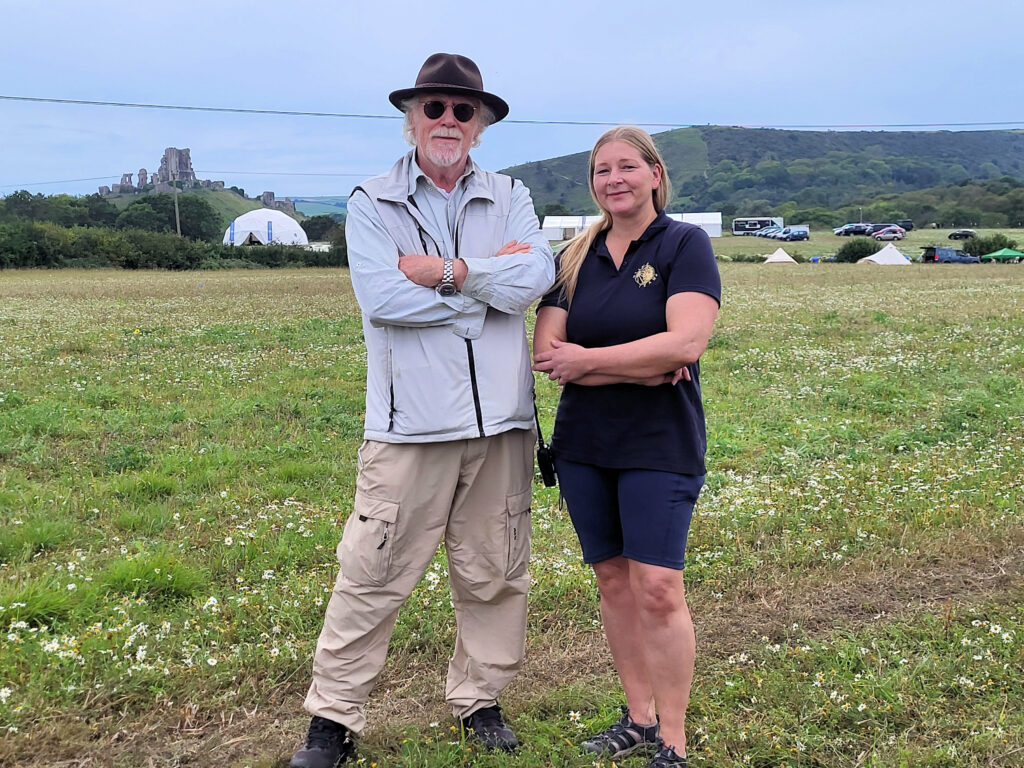
Time Team creator Tim Taylor with archaeologist and presenter Dani Wootton
“These are exciting times”
Professor Tim Taylor, creator of Time Team and still at the heart of the show, said:
“These are exciting times, we are covering many years of history in one place, with Iron Age and Roman finds we can accurately date and evidence of kilns.
“This could have been a place of Roman industry where they were perhaps creating pots and selling them or trading them with other areas.
“We know there was a group of people living here before the Romans, the question is how large was the group, what were they doing, how were they making a living, and how they reacted to the arrival of the Romans.
“Our aim is for people to be able to sit at home and watch Time Team digging, so that you can almost watch a dig live as though you were there – I’m not sure we’re quite there yet, but the closer we can get to it the better.”
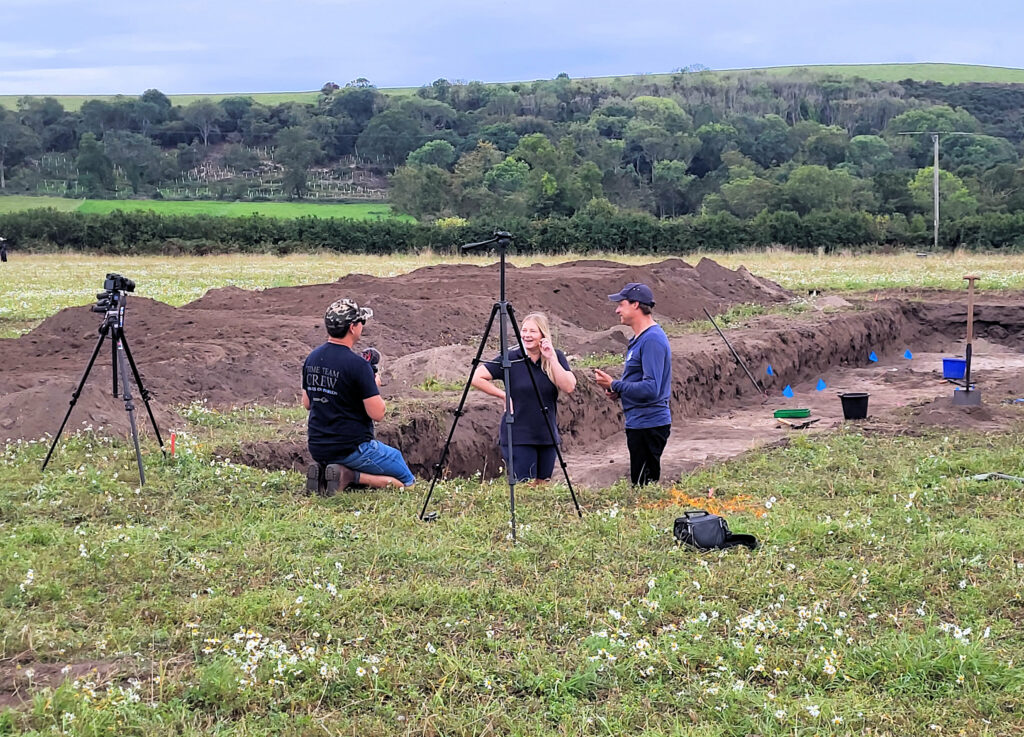
Dani Wootton filming in the trenches for Patreon and YouTube videos
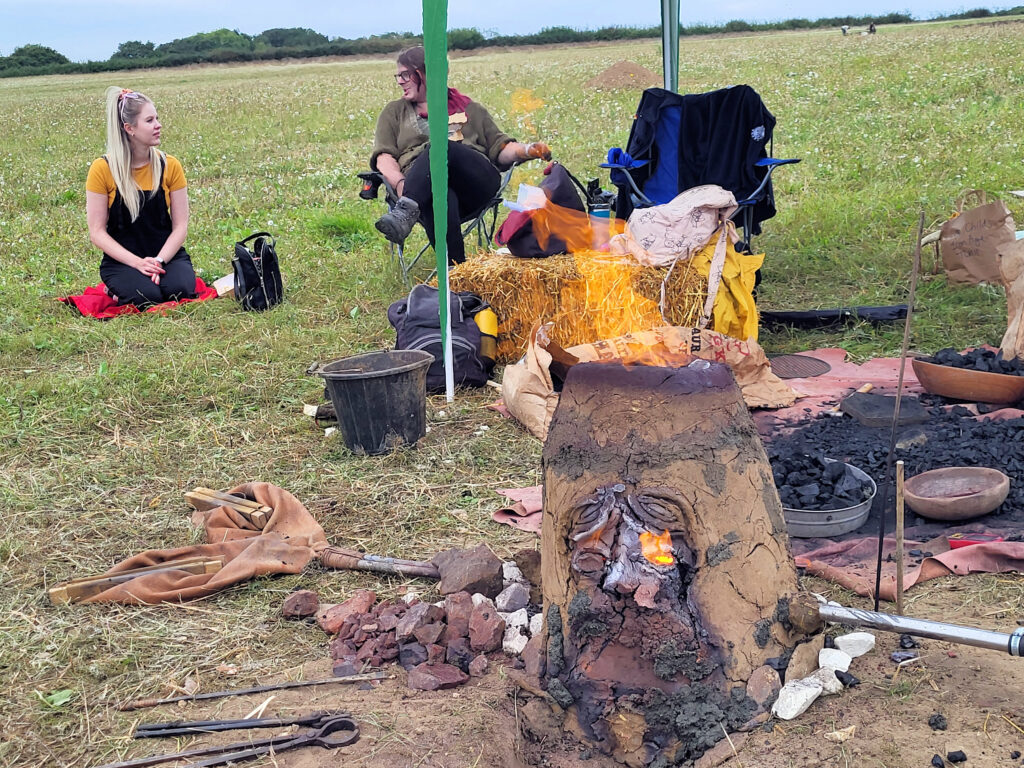
Historians recreated the Romano Saxon kilns found on the site to fire their own pots
“Corfe Castle like a crumbly Stonehenge”
Professor Taylor added:
“We are on these amazing sites so the public can share the experience. We have digital avatars of historical figures, so you can watch the programme with all the enhancements of an Iron Age virtual reality site.
“We couldn’t do it without the cooperation of farmers who take an interest in archaeology and are willing to let us come on site to investigate – but once again we are in the hands of the weather and as always with Time Team we have just three days to complete our dig.
“I do love Corfe Castle, it is like a crumbly Stonehenge, really atmospheric, but my favourite moment in 30 years must be digging the Queen’s garden at Buckingham Palace.
“Although equally, digging the surroundings of Westminster Cathedral and discovering the remains of Anglo Saxon monks was just amazing.”
The excavation at Corfe Castle coincided with the 30th anniversary of filming Time Team’s first episode, back in 1993, which aired the following year, which focussed on a Somerset site which was believed to have been the fortress of King Alfred the Great.
Time Team ran on Channel 4 until 2014, fronted by Blackadder actor Sir Tony Robinson and archaeologist Mick Aston, and returned in 2022 to YouTube and online subscription platform Patreon, where more than 9,000 people now watch regular, exclusive content.
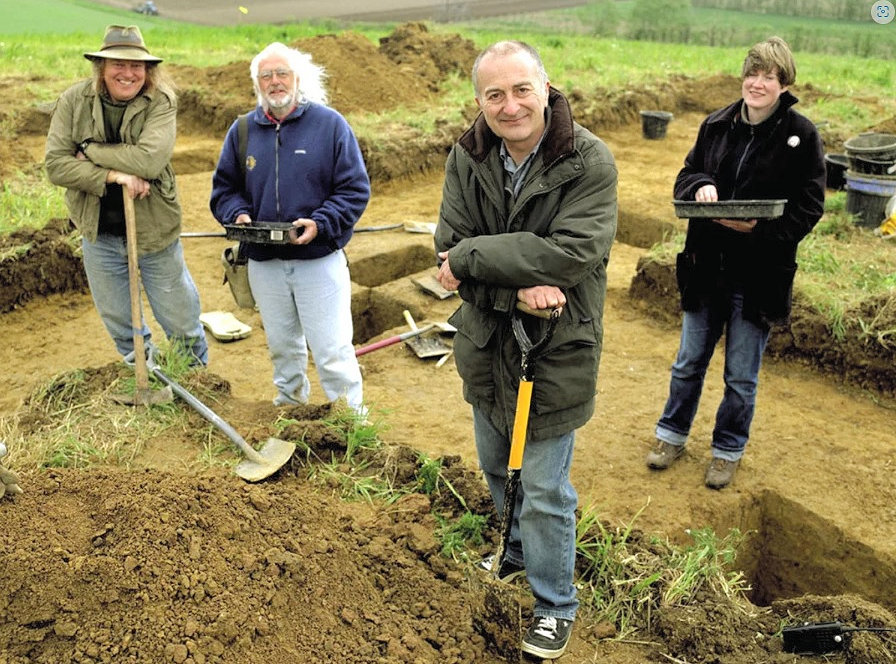
Sir Tony Robinson with the original lineup of Time Team
Completely swept away by its magic
Sir Tony Robinson, who is still involved with the programme, said:
“Corfe Castle is my favourite castle, as it’s the castle of my childhood. All my holidays were on the south coast when I was little, and we always used to go to Corfe.
“I just used to march around the ramparts for hours on end holding a pretend sword over my shoulder, peering through the little slits, looking for invaders outside.
“I was completely swept away by its magic. I think if there is one place that has imbued in me a sense of the excitement of English history, it has to be Corfe Castle.”
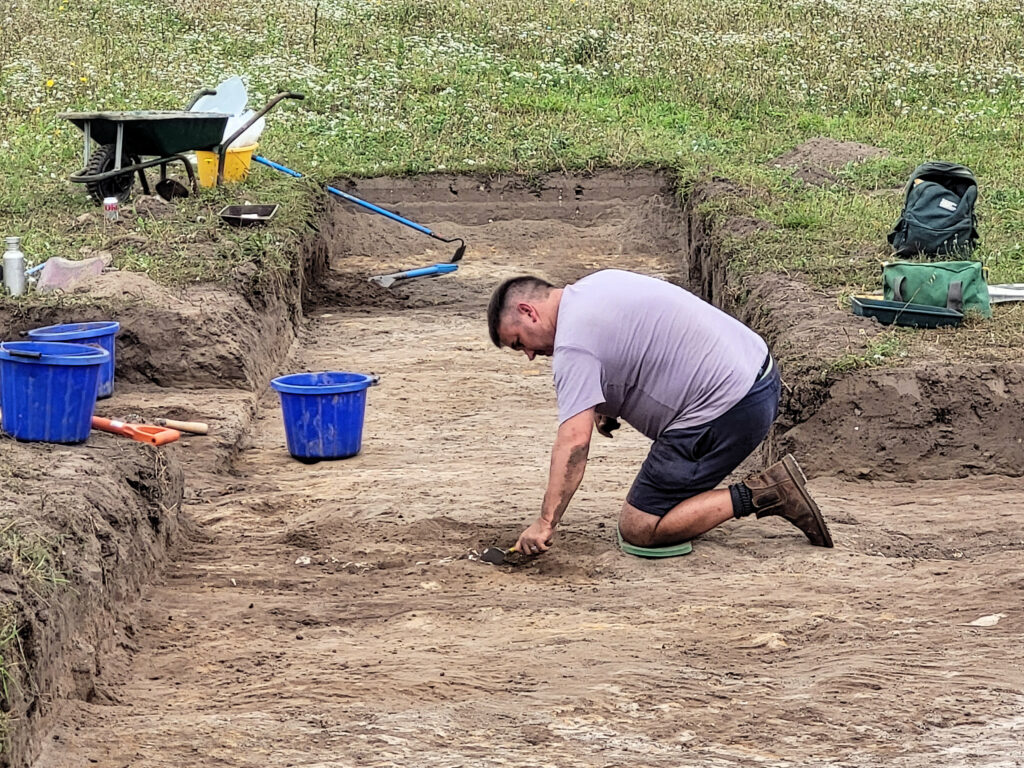
One of the team makes an exciting find as the field reveals its treasures
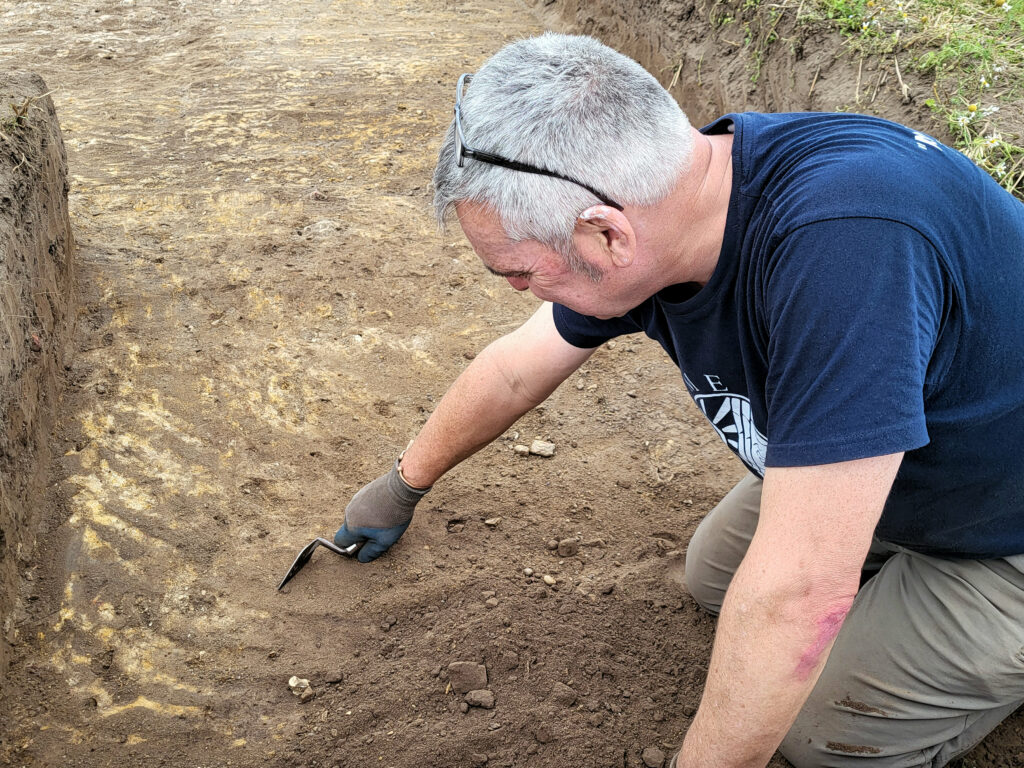
The tiniest of trowels are used to prevent damage to 2,000 year old finds
Archaeology for the people
Archaeologist Dani Wootton, who is presenting content from Corfe on Patreon, said:
“Time Team was the first TV series to bring archaeology to life in the way that other documentary programmes didn’t, at a time when the subject had a stuffy classroom image.
“To walk an audience through the process of having people on site, not quite certain of what they were finding, where the story was changing with every new find, found a new audience, it really was archaeology for the people.
“The contribution we have made to archaeology without using tax payers’ money is immense, at the same time as educating people and getting them enthused about their heritage. It has taken an academic subject and put it out there at the heart of the community, which is really amazing.”
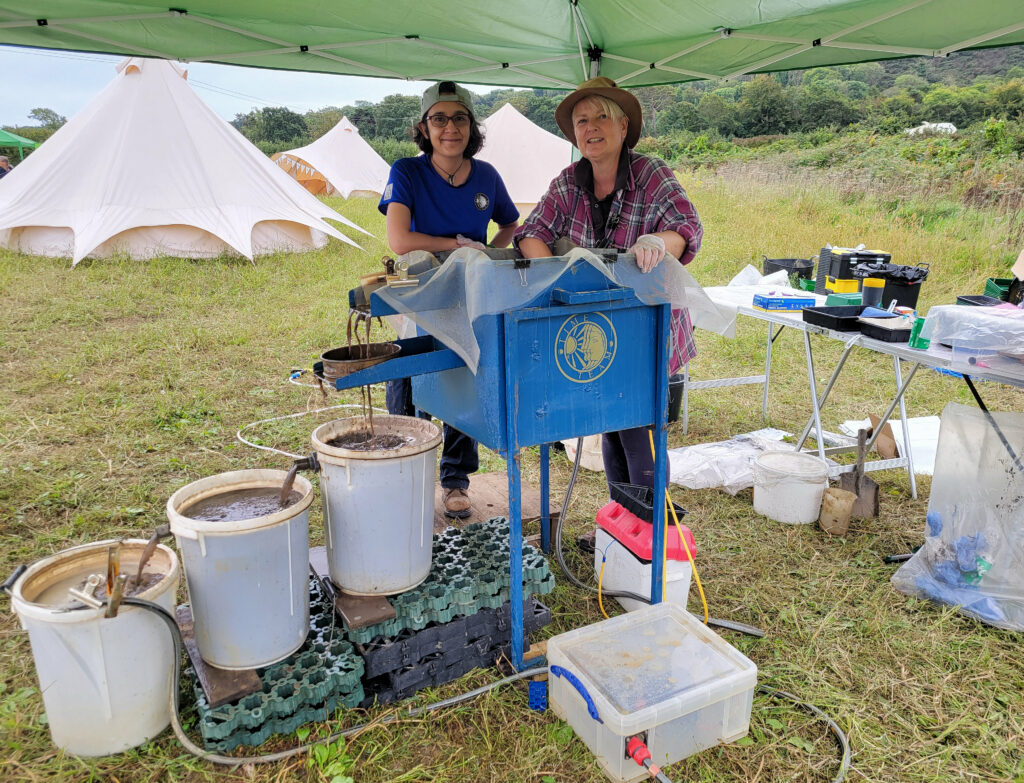
Environmental archaeologist Naomi Sewpaul and Siggy Osborne of Bournemouth University
“I still can’t watch it without crying”
Environmental archaeologist Naomi Sewpaul was excited by discoveries of carbonised seeds in the floatation tank, where soil samples from the trenches are washed through to discover what has survived, revealing surprising amounts of detail.
Naomi worked on a burial site in East Anglia where a woman of high birth was buried and said:
“She was buried with a very thin copper alloy bowl and I sifted through the soil within it and started to find twigs and leaves which had been preserved by the chemical composition from the metal.
“Ten months later I had discovered that she was buried on a birch plank surface, possibly a coffin with foxgloves, ferns, brackens, blushing lanterns and apple or pear stems, and was able to work out when she died and when she was buried.
“At the very end of the programme when we did the reconstruction, I bawled my eyes out and I still can’t watch it without crying.”
Time Team from Corfe Castle is expected to be screened on YouTube in 2024.
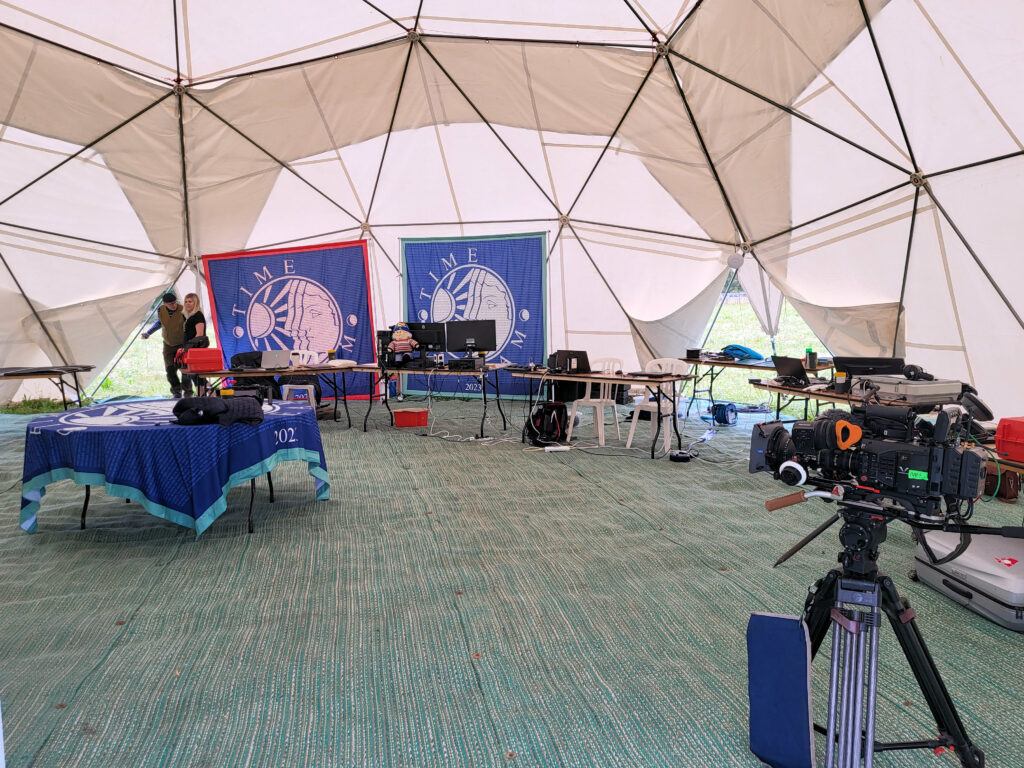
Inside the Time Team tent where film is edited and 3D artefacts recreated
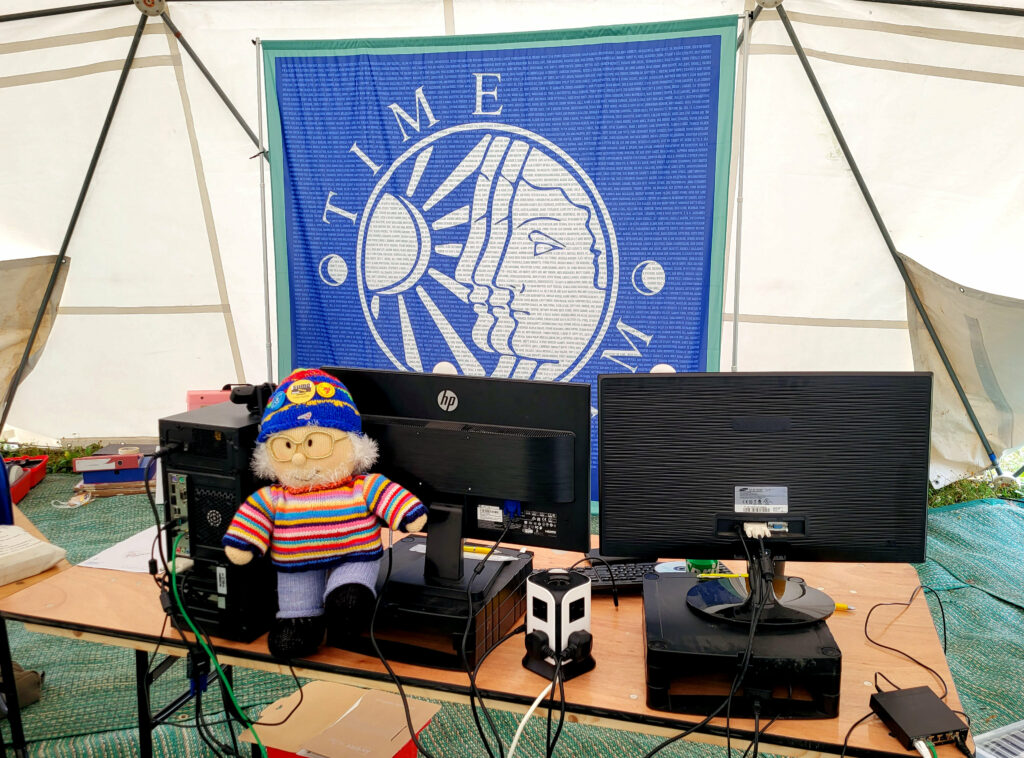
And there’s even a memorial to Mick Aston, the archaeologist who became a national treasure
Further information
- Follow the Time Team on its new digital platform
